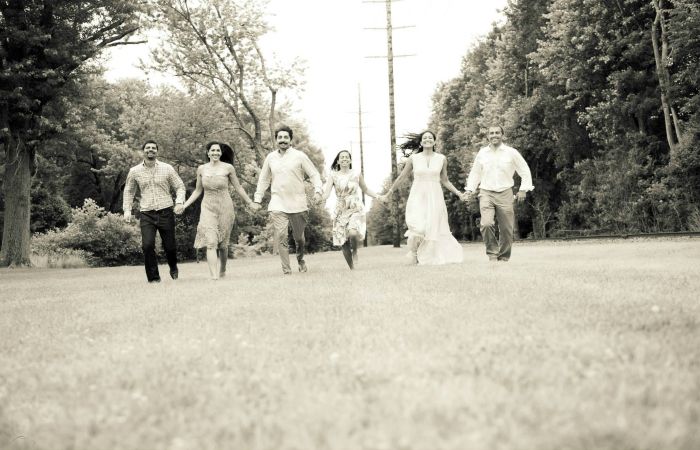The Challenge: Negative events create powerful memories that can make us unhappy.
The Science: How we think about our lives influences how happy we are.
The Solution: Here’s how to change your perspective for lasting happiness & resilience!
Have you ever noticed that some memories are just more powerful than others? More often than not, these memories are negative.
Perhaps you have a memory of a negative situation in which you lost something or someone: the woman of your dreams lost a big sports bet or lost out on a job promotion.
As painful as these memories are, they also tend to remain fresh in our minds for longer, no matter how much we wish they would just go away.
Brown and Kulik call these exceptionally vivid snapshots “flashbulb memories.” These vivid memories are often comprised of elements of personal importance, consequentialism, and emotion. You remember them much more clearly than you would mundane experiences (LaBar & Cabeza, 2006).
So what can we do about them?
How You View Your Bad Memories Determines How Happy You Are
We can accept that those memories are easy to recall, but did you know that how we think about our stumbling blocks from the past can tell a lot about our happiness in the present?
In her book Quiet: The Power of Introverts in a World That Can’t Stop Talking, author Susan Cain explains that “the way we characterize our past setbacks profoundly influences how satisfied we are with our current lives.”
“Unhappy people tend to see setbacks as contaminants that ruined an otherwise good thing (‘I was never the same after my wife left me’), while generative adults see them as blessings in disguise (‘The divorce was the most painful thing that ever happened to me, but I’m so much happier with my new wife’),” Cain says. “Those who live the most fully realized lives – giving back to their families, societies, and ultimately themselves – tend to find meaning in their obstacles.”
Choosing to see setbacks as blessings rather than bothers can affect not only our happiness but also our resolve.
Ask Yourself These 3 Important Questions
Author Daniel Pink says in his book, To Sell is Human, that how we explain negative events to ourselves has a major impact on our resiliency. Pink writes that “when something bad occurs, ask yourself three questions and come up with an intelligent way to answer each one no.”
Question 1: Is this permanent?
Question 2: Is this pervasive?
Question 3: Is this personal?
To illustrate Pink’s point, let’s take an example of a flashbulb memory of a time our boss rejected a proposal we created:
We worked our butt off trying to come up with creative ideas. We were thrilled to have created what we considered the perfect proposal, only to have our boss immediately shoot it down. Not only were we embarrassed in front of the whole office, but we felt like we jeopardized our chance at a promotion or a raise. Our career is doomed.
Or is it? What happens next can build up or destroy our resilience and play a major role in our happiness.
Let’s take a look at Pink’s three questions and see what a no answer looks like vs. a yes answer.
Question 1: Is this permanent?
– Yes. We are terrible at coming up with ideas. Everything we create from now on, our boss will automatically hate.
– No. Maybe this idea didn’t work for this specific project, but we have other ideas to use in the future.
Question 2: Is this pervasive?
– Yes. We are awful at our job and should find another profession.
– No. We were just a little off at how we proposed the idea.
Question 3: Is this personal?
– Yes. Our boss hates us. He is a jerk.
– No. Our boss just had a different vision, and we will try this idea again on a later project.
Do you see the major differences between a yes answer and a no answer?
Spending time only giving ourselves yes explanations can be a major downer. Negative events will take their toll on our happiness.
But on the other hand, no explanations make it easier to cope with negative results. We see that there is nothing inherently wrong with our ideas, and we can (and will) do better.
Choosing a no explanation over a yes explanation can make a huge difference in how we bounce back from negative experiences. Pink explains that, “The more you explain bad events as temporary, specific, and external, the more likely you are to persist, even in the face of adversity.”
So next time we experience a negative flashbulb memory, we need to ask three questions: Is this permanent? Is this pervasive? Is this personal? Finding a way to answer no to each one can be an essential difference between happy and unhappy people.
Unhappy people blame setbacks. Happy people find meaning in their obstacles.



